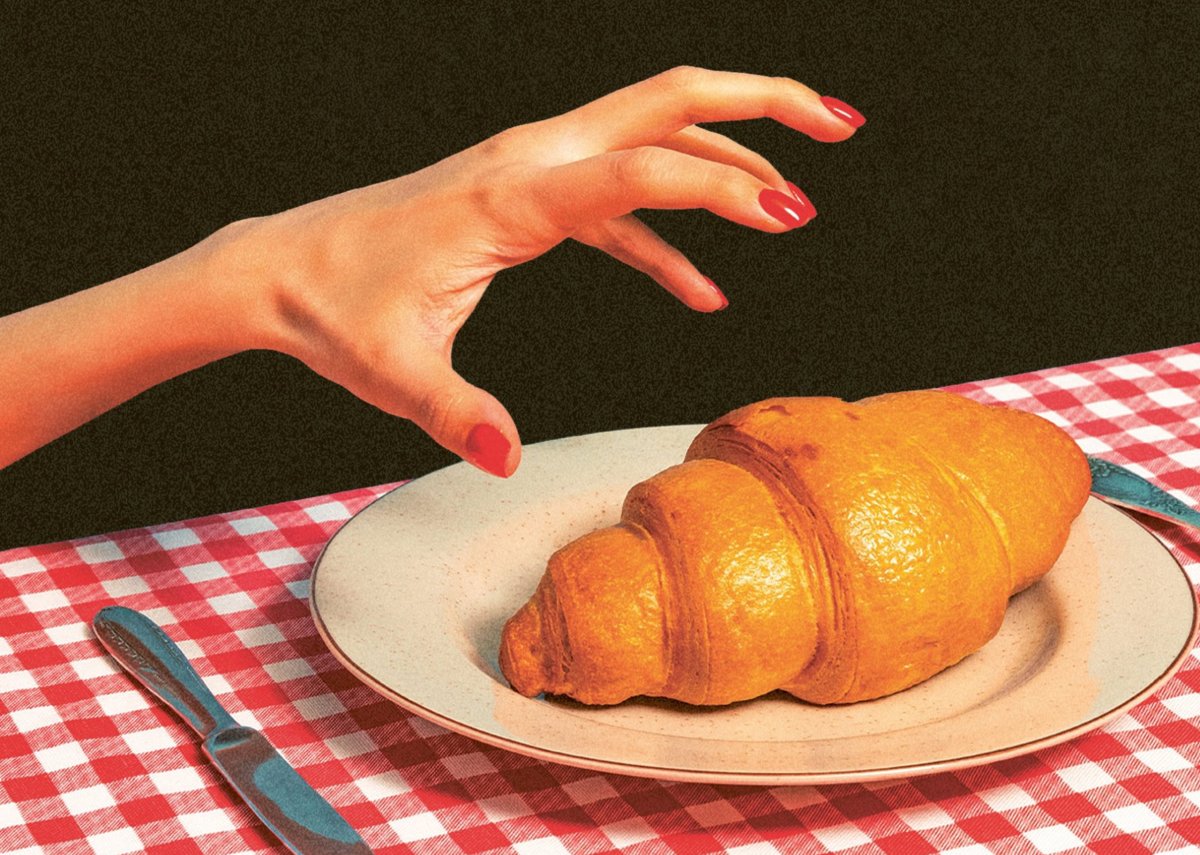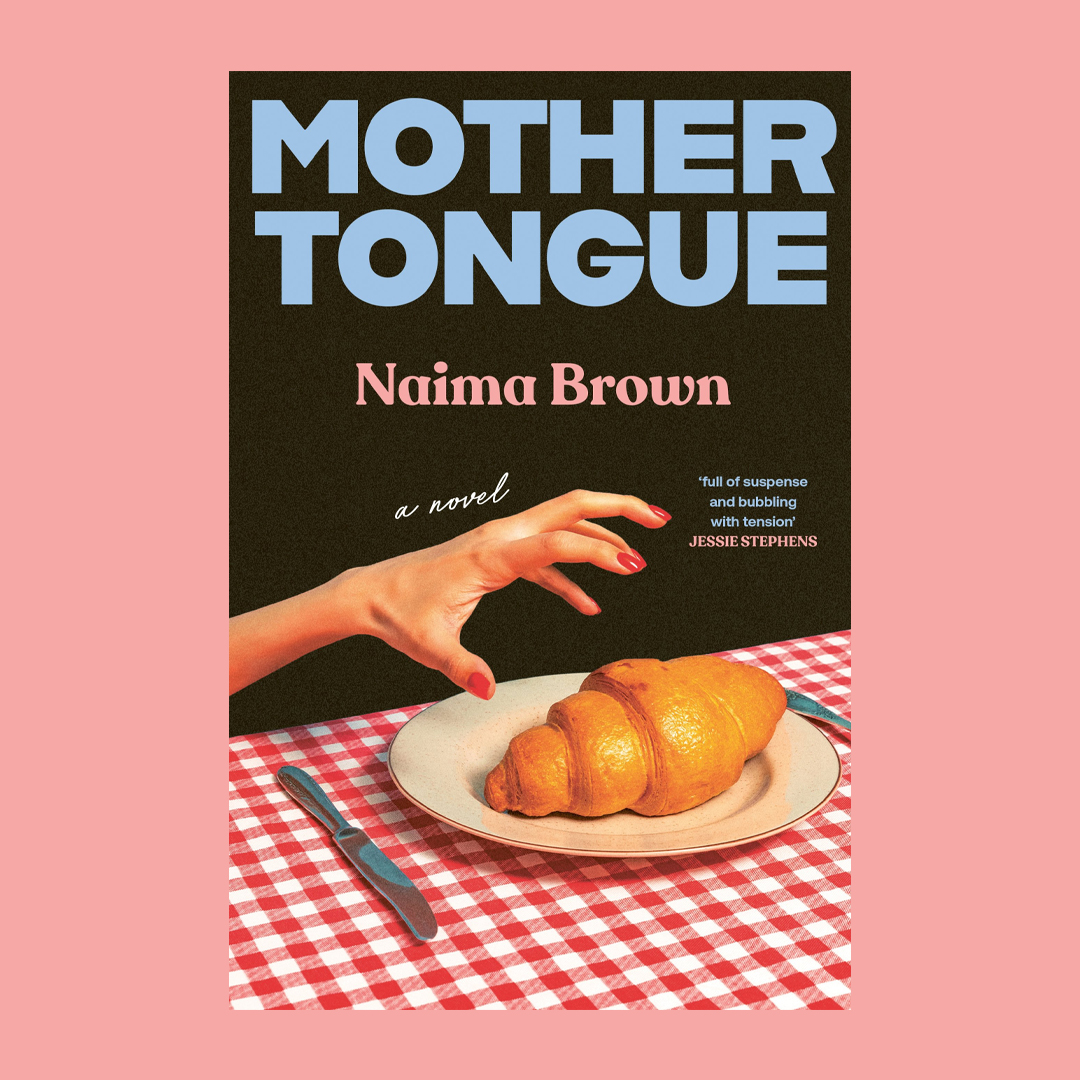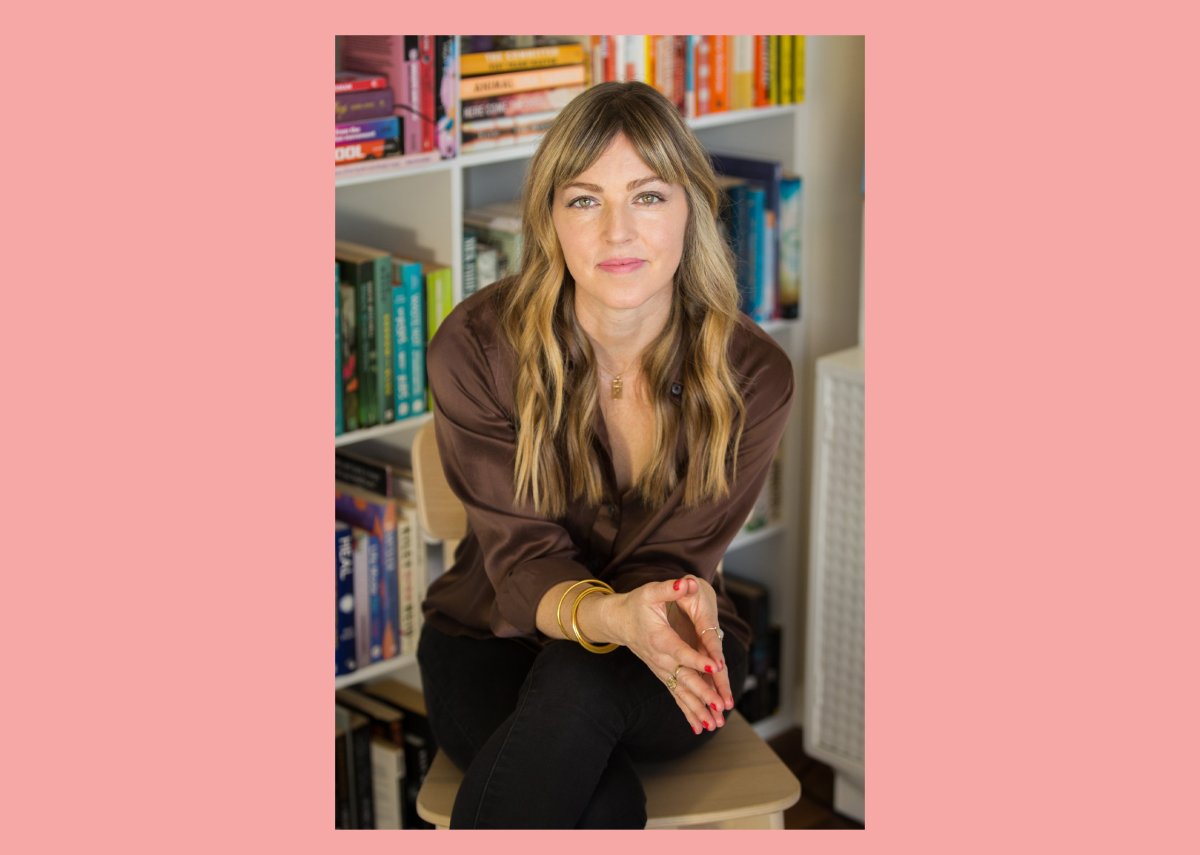29 July 2025

Hi Naima, before we dive in deep, I’d love to know what drew you to the Northern Rivers, as someone born in the US who’s lived in Yemen and Afghanistan?
I love this question – because I moved here to live closer to my best friend. We hear so much about people moving for romantic love, but not as much about people moving for platonic love. I’m lucky to have both here now, having met my husband in Lennox. But the origins of my move to the Northern Rivers is female friendship – something I think more women should consider doing.
I’ve been living in Australia since 2012 and am currently in the process of becoming an Australian citizen. Ironically, it was the encounter with an incredibly talented group of Australian creatives while I was living in Afghanistan that ultimately brought me to Australia – one road forks into another, as they say.
How has living across such diverse cultures shaped the way you view the world—and write about it?
In terms of how I view the world – my travels and experiences have had a profound impact on who I am as a human being and how I see myself as a citizen of the world. Travel is such an incredible privilege – and I’m especially lucky to have spent so much time living, studying and working in countries that are, tragically, not easy to go to anymore – like Yemen and Afghanistan, two places I was lucky enough to spend a significant amount of time in. Everything about the life I am living now is because of the years I spent as a guest in a very special and very fraught part of the world.
When it comes to how I write about other cultures…it’s tricky. I don’t feel equipped or entitled to write a novel that’s set in Yemen, for example, even though I lived in Sana’a for about three years. I’ve been living in Australia for about thirteen years now and am only just feeling ready to write in an Australian setting. I think it’s about isolating a point of view that isn’t appropriating or mimicking a cultural-fluency that isn’t genuine.
I feel an enormous responsibility to “get it right” – and what that means in practice isn’t always clear, and that can make some writers avoid portraying other cultures and spaces outside of their own, which I don’t believe is the answer either.
With Mother Tongue, which is explicitly concerned with the way that language shapes our experience of self and of culture – I felt an enormous responsibility to make sure that the translations were precise and nuanced – and so even with the languages that I’ve had some significant exposure to (French & Arabic) I had native speakers sign-off before we finalised the manuscript. And, I’m very happy I did, because it turns out that how you tell actually someone to “fuck off” in French is much different than what Google Translate will tell you!

You haven’t just moved through different places, but also different disciplines—you hold degrees in Middle Eastern Studies, Anthropology, and Religious Studies, and you’ve worked in journalism, current affairs and documentary. What made you want to start writing fiction?
Well, the irony is that I was writing fiction before I formally studied anything. I was writing little books and short stories in primary school – and some very earnest poetry all through highschool.
I’ve always written fiction for myself and my friends, but mostly short fiction. It wasn’t until the pandemic that I challenged myself to finish a novel length manuscript – which became my debut novel, The Shot.
With such a rich and varied background—from academic fields to media and now novels—how do you think all of that has helped shape your voice as a writer?
Oh, immensely. I used to do a lot of academic writing – and have a weird soft spot for a well written thesis with beautifully organised citations and notes. I love when novelists use footnotes as a storytelling device – I haven’t tried that yet, but I may someday.
And in media – I’ve written many hundreds of thousands of words in the form of articles, scripts, pitches and so on.
I think what both academia and media has taught me as a novelist is the importance of writing for your audience, not for your own edification or to pat yourself on the back. Clarity is so important, as is a kind of generosity to your reader. This doesn’t mean dumbing anything down, but it does mean respecting your reader and not being intentionally impenetrable or opaque. I’m also a ruthless darling-killer. I don’t get too precious about things – no matter how pretty the words may be on the page – if they’re not serving the plot and honouring the reader. And that ruthlessness is definitely something I’ve learned in the halls of academia and the cutting room floor of TV.
Your latest novel Mother Tongue came out in March—congratulations! For those who haven’t read it yet, how would you describe it? And what kind of reader do you imagine will connect with it most?
Thank you so much!
Mother Tongue tells the story of Brynn Mitchell who we meet at a time in when she’s feeling acutely disconnected and disenchanted with her life and the people in it; specifically her older, conservative husband, Eric, and her best-friend turned frenemy, Lisa. She’s a stay-at-home mother for her young daughter, Jenny, whom she loves deeply but who leaves Brynn very little mental space to find a sense of purpose beyond motherhood. Suffice to say, Brynn is someone who has always been hoping that an escape hatch might open…So, when Brynn awakes from a coma speaking fluent French, she seizes the opportunity to start a brand-new existence, throwing her world, and all those who inhabit it, into a tumultuous emotional cyclone that ultimately consumes them all.
While motherhood (specifically, the abdication of motherhood) is the more obvious theme, Mother Tongue also explores other relationship dynamics.
The arc of Brynn and Lisa’s relationship is a close examination of the female friendships that span the many seasons of our lives, for example. With the character of Eric, we explore the dark political and religious radicalization happening to so many American men. And, of course, underpinning the whole story is an exploration of the role that language plays in our experience of our lives and each other.
I love hearing from readers – and I’ve heard from so many people who have gotten something different from Mother Tongue, I think it is attracting a very diverse readership which is making for some really interesting conversations.
Themes like identity, motherhood, and personal reinvention seem to echo through your work. Are those themes you consciously pursue—or do they naturally find their way in?
These are definitely themes I consciously pursue. Perhaps a better way to describe it is that I am deeply interested in the messy, imperfect inner lives of women. I love to meet my female characters at a time where they are ready to throw a grenade at their life and see what happens. So, identity, motherhood, reinvention – these are inextricably linked to the lives of the women I’m obsessed with creating.
The fact of Brynn’s motherhood is an enormous variable in her character’s trajectory – from the title of the book right through to the last page. But we also see her grapple with her role as a wife, as a daughter and friend.
Women’s identities – far more than men’s, in my view – are bound up with their responsibilities to the people to whom they are meant to be providing some form of caregiving. This is not necessarily inherently problematic if it weren’t for the fact that the expectation is a kind of relentless identity-eroding selflessness.
I’ll share an interesting story: When the cover for Mother Tongue was revealed, Pan Macmillan carried out a book giveaway on Instagram. Entrants were asked to answer one question: If you woke up speaking a foreign language, what would you do? The lion’s share of respondents were women, and every single one of these women answered that they would immediately go to the country where they could now communicate fluently, that they would run full pelt into the opportunity. It stands to reason that many of these respondents are mothers – yet because the question didn’t mention motherhood – their answers were free from this consideration. I am certain that had the question been: “If you woke up speaking a foreign language, but you had a young child, what would you do?” – the answers would have been very different.
There’s a subtle use of humour and satire in your writing, even when the subject matter is serious or layered. How do you approach that balance?
I think this operates on two levels for me, my own sense of humour, and that of my characters. I am interested in what my characters find funny, what makes them roll their eyes. I think having a strong understanding of your characters’ sense of humour can lead you to all kinds of unexpected places. Even realising that, perhaps, a certain character has no sense of humour or can’t take a joke can create some very rich encounters on the page.
When it comes to myself, well, for better or worse, I am prone towards gallows humour. And there is a deep absurdity that kind of sits alongside earnestness – people who take themselves extremely seriously, or who see themselves as so vital in an outsized way, there’s something inherently funny about that to me. And of course, there are some characters – like Eric and his neo-Nazi girlfriend, Cheryl, who deserve to be laughed out of the room.
What does your writing process look like these days? Are you someone with a set writing routine, or do you write in creative bursts? And where does your inspiration come from?
I think I walk a middle path. I can be very ritualistic and routine focused, and I can also be spontaneous when ideas arrive on their own timing. I have a strong belief that if you show up for the work, the work shows up for you. In my case the ‘work’ is writing – but it could be any creative pursuit. Sitting down at the desk and just being ready to hear what the work needs and wants from me is an enormous part of the writing process. Sometimes it may only yield a few words, other days it might be whole chapters that just erupt into existence. But you have to be there – committed and undistracted – to capture it.
As for inspiration – as cliche as it sounds, I find inspiration literally anywhere and everywhere. I find people infinitely interesting – stories are everywhere, ideas are everywhere.
Inspiration isn’t the hard part – it’s distilling that inspiration into something worth writing about (or, more importantly, worth reading about) that’s the challenge.
For our audience of creatives, could you talk us through the journey of getting a novel published—from idea to finished book? How long does it usually take, and what parts of that process were surprising or unexpected to you?
If there’s one thing I’ve learned it’s that everyone’s publishing journey is different. Writers find their way to their readers in so many different ways these days. For me, I had finished my entire manuscript (for my first novel, The Shot) before I reached out to a literary agent. I was really lucky to be taken on by Pippa Masson – one of the most extraordinary and hardworking agents in the biz – of Curtis Brown, fairly early on in the process. And it didn’t take her long to secure a publishing deal with Pan Macmillan.
I think what has been the most wonderful surprise is how collaborative the editing process has been with the team at Macmillan. It’s an extraordinary privilege when other deeply creative people lend their minds to your work, and I’m a stronger writer for it.
You also co-authored How to Age Against the Machine with Melissa Doyle. What was it like collaborating on a book compared to working solo?
Oh this was such a joy. Firstly, Mel is one of my best friends – and our friendship was forged in collaboration (we met when I was a producer at Channel 7’s Sunday Night program). So we have always known how to work together. Our book was also off the back of the audio series we created for Audible by the same name, so we had all of these stories and the knowledge we’d accrued from so many wise women, that we were very anchored in our purpose as to why we knew this book needed to exist. Purpose is fuel. Beyond that, we also knew our strengths as writers, how to divvy up tasks and support each other.
What amazes me, however, is when you see two people co-write fiction. I can’t even fathom how that works! Non-ficiton is a whole other kettle of fish – in my experience.
You’re part of the Byron Writers Festival program this year, which is so exciting! You’ll be appearing in two different sessions on Friday 8 and Sunday 10 August—what are you most looking forward to about being involved in the festival?
I have enjoyed the Byron Writers Festival every year since moving to the Northern Rivers and have benefited so much as an audience member. So I am really looking forward to contributing to the careful curation that the BWF team does every year, and their commitment to big, juicy conversations. I am very excited to discuss Mother Tongue alongside some fascinating women for a conversation around female friendships in literature. I have a LOT to say on that topic and I think it’s going to be a really thought provoking session.
I’m also thrilled to be in conversation with Robbie Arnott about his latest novel, Dusk, which has a tight grip on me and won’t let go (in the best way). And I am also moderating a conversation on Romantasy with two highly accomplished writers in the genre – I have a million questions for them, so the challenge (and the delight) will be choosing the most thrilling topics of us to discuss.
What’s something you’ve read, watched or listened to recently that stayed with you?
Well, as I said, Robbie Arnott’s Dusk is a marvel. Hard recommend.
On the small screen, I absolutely devoured Seth Rogen’s latest project, The Studio, on Apple TV. So inventive, so original, deeply intelligent and funny – chef’s kiss.
And finally—what’s next? Any new ideas, directions, or projects on the horizon?
I am excited to share that I have an Audible Original piece of fiction coming out in September. It’s called The Cruise and while I can’t share any of the voice actor names yet, I can share that it involves 17 incredible actors. Really, it’s a piece of audio theatre. I’ll be sharing more soon, so the best place to stay in touch is to find me on Instagram.
Regarding my next novel…I have too many ideas. My challenge is picking one to focus my attention on.
I am currently in the “prep the garden bed” phase of my writing process…laying down new soil, making sure there’s enough worms and nutrients for big ideas to grow…weeding out the fluff…I’ll just say: watch this space.
